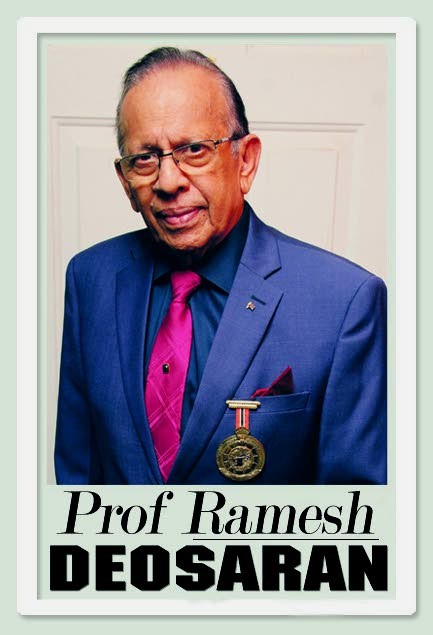Voices of the Republic speak again

Our Republican Constitution is kept alive through the voices in Parliament, in the courts and the free press. During the last two weeks, obviously inspired by our 59th independence anniversary, a diversity of voices raised their praises and complaints.
Two years ago, this column was headlined Voices of the Republic. I welcome them again. Three notables came from President Paula-Mae Weekes, the Prime Minister and Opposition Leader Kamla Persad-Bissessar, all of whom referred to the country’s democracy struggling to maintain the balance between individual rights and collective responsibility.
Complaining about how much self-interest has overcome collective responsibility, political activist Ferdie Fereira called for “shifting the narrative from "me to we.’” Hundreds of social and political philosophers have appealed for this “shift” only to come up against fears of creating an anti-democratic society. Letter-writer Kevin Baldeosingh put it this way: “The imposition of collective responsibility over the right of the individual has always led to social and economic regression and at the extreme, history’s worst atrocities.”
Attempts to harmonise various interests with one another, and without having one unfairly against the other, have failed. Competition and the passions of self-interest can be tamed but not eradicated.
The President said it was “dispiriting” to hear that citizens “must still clamour for sound infrastructure, smooth roads, steady water supply, functional social services, manageable cost of living, security for person and property, justice on time, fair wages and accountability in public affairs and quality health care.”
Noting that our society is “still growing up,” she added: "We cannot lose sight of the fact that democracy champions both our individual rights and the rights of others.”
Democracy is a diversity of voices and interests. That’s why the Parliament, independent courts and a free, independent press are necessary to accommodate the diversity as well as resolve the conflicts. That’s why self-interest vs the rights of others must be discussed on a case by-case basis.
Ms Persad-Bissessar argued against the Government’s three-year extension of the state of emergency by saying the executive has the authority to use these emergency powers, “but with good reason.”
She added: “Our livelihoods, our well-being, even our very democracy have all never been under greater threat than they are today.”
To this Dr Rowley said: “I speak of rights, but placing more emphasis on responsibilities.” He added: “Once we fully recognise our obligations and rights, that all citizens hold an equal share, we can take charge of shaping a better, collective future.”
This is a good example of divergent views with political implications as expressed between Ms Persad-Bissessar and Dr Rowley. Once again, it will boil down to party politics, even with covid19.
Paras Ramoutar wrote: “At Independence, we hear great platitudes about proper governance but these are just a sham. Our leaders must come clean and tell the nation that they have failed now, and will fail in the future.”
The diversity of voices continued, with another letter-writer, Barry Evans, from Princes Town: “I am sure most reasonable citizens support the Government’s actions, and do not consider them to be a threat to democracy.”
Imaam Iqubal Hydal wrote: “Throughout the pandemic, the PM has emphasised his Government’s actions were based on science. The scientific evidence shows that the citizenry has no confidence or faith in the actions of the Government. The Opposition, as part of our governance, has been a vagrant on this issue. The science shows that both Government and Opposition should do the honourable thing and resign.”
While a diversity of voices is essential in democracy, the persistent, free-floating contradictions must be noted, especially those seeping through social media. Politics, democratic or otherwise, survive more on perceptions than on facts. Facts often take too long to come. Prejudice and perceptions are close, first cousins that absorb propaganda.
No institution creates more quickened perceptions than the mass media. The truth may never emerge, not even from the courts.
That’s why critical thinking is so vital for the citizen in a democracy, except that many people prefer generalised statements that are easy to read and hear and match their prejudices – the danger of the single, simple story. So while DOMA president Gregory Aboud and Dr Errol Benjamin asked for more voices to be heard, it should be, as Noble Phillip said, in context.

Comments
"Voices of the Republic speak again"